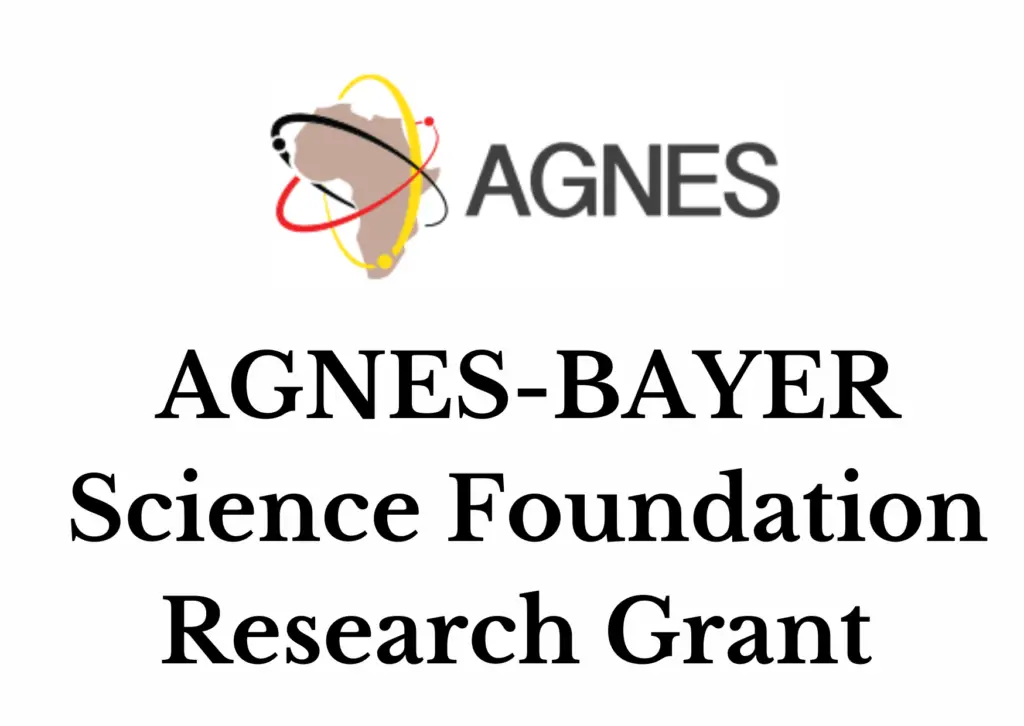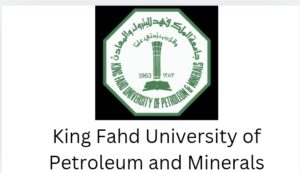
Table of Contents
About the AGNES-BAYER Science Foundation Research Grant 2024
The AGNES-BAYER Science Foundation Research Grant 2024 is now open for applications, offering a fantastic opportunity for African researchers to pursue outstanding research activities in the fields of Biodiversity Conservation and Sustainable Agriculture.
The AGNES-BAYER Science Foundation Research Grant for Biodiversity Conservation & Sustainable Agriculture aims to empower doctoral students from sub-Saharan African countries, providing them with the support and resources to carry out exceptional research endeavors. This includes field experiments, data collection, laboratory studies, and other outstanding research activities related to biodiversity conservation and sustainable agriculture.
The grant is designed to assist African PhD students in implementing and carrying out activities that are part of their doctoral research, while also emphasizing the relevance of their work to the further development of their home countries in sub-Saharan Africa. The grant offers a maximum award of EUR 7,000 to each successful applicant, enabling them to make significant contributions to the advancement of scientific knowledge and sustainable practices in their respective fields.
This is an incredible opportunity for junior researchers to not only advance their academic pursuits but also to make a meaningful impact on the future of biodiversity conservation and sustainable agriculture in sub-Saharan Africa. By supporting African PhD students in their research endeavors, the AGNES-BAYER Science Foundation aims to foster positive change and promote sustainable development in the region.
Eligibility Criteria
To be eligible, applicants must meet the following criteria:
💬 Get Paid in Dollars Just by Chatting With Lonely People
Imagine earning daily dollar income from anywhere in the world — no degree, no experience, no interviews — just your phone or laptop.
People are getting paid simply to chat, listen, and keep others company online. This short ebook reveals:
- ✔ Legit platforms that pay in USD
- ✔ How Africans can register & withdraw successfully
- ✔ What to say to keep conversations paid
- ✔ How beginners start with zero experience
Instant download • Works worldwide • Beginner-friendly
- Available to young investigators who have at least one scientific publication in a non-predatory journal.
- Candidates will only be taken into consideration if they have an exceptional academic record and have published in international journals that are peer-reviewed and indexed in Web of Science (WoS) or SCOPUS.
- The URLs for each publication on SCOPUS or Web of Science must be provided by candidates.
- Candidates ought to be employed in the sustainable agriculture or biodiversity conservation sectors.
- Must be officially registered for a Doctoral degree at a university or tertiary institute in sub-Saharan Africa.
- Must be a citizen of a nation in sub-Saharan Africa.
- The research proposal must demonstrate relevance to development in sub-Saharan African countries.
Required Documents
The application also requires to submit the following documents:
- A short original research/project proposal (not more than 5 pages)
- A standard CV of the applicant
- Official proof of registration
- A copy of the official Academic transcripts
- A list of published articles in non-predatory journals with SCOPUS or Web of Science links (URL) to each publication
- A detailed budget for the planned activities
Benefit of the AGNES-BAYER Science Foundation Research Grant 2024
The grant has a maximum budget of EUR 7,000, and it is a one-time payment. It cannot be utilized to reimburse any past fieldwork expenses.
How to Apply
If you are an enthusiastic and dedicated doctoral student with a passion for biodiversity conservation and sustainable agriculture, don’t miss this chance to apply for the AGNES-BAYER Science Foundation Research Grant 2024. Your research could be the driving force behind transformative advancements in these critical areas, benefiting both your academic career and the future well-being of sub-Saharan Africa. Seize this opportunity and bring your innovative research ideas to fruition!
To complete your application, fill out the official application form from the link below. The deadline for applications is August 30, 2024.
See also:
Journalism Programs for Africa 2024 at Deutsche Welle (DW): Apply Now!
Fully Funded World Bank Junior Professional Associates Program 2024: Apply Now!
2024 Louisiana State University Scholarship for International Students in the USA: Apply Now!
BIND Open Innovation and Acceleration Program 2024 for Startups: Apply Now!
🔥 Want to Make Money Online the Right Way?
Discover how smart people are quietly earning with AI, Email Marketing, CPA, LinkedIn, Online Teaching & Content Creation.
This is not theory — it’s a step-by-step system.
👉 Get the Ebook Now











